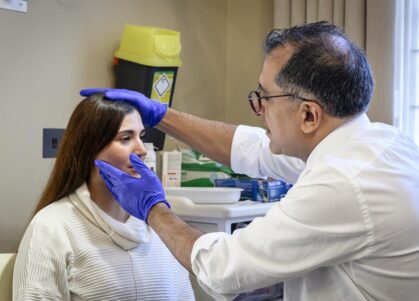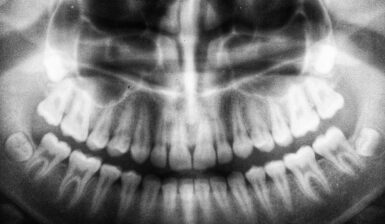Why Do We Have Wisdom Teeth?
Our ancestors needed wisdom teeth to help grind tough, raw plant foods that were hard to digest. Over time, as diets changed and we started cooking our food, we no longer needed these extra molars.
However, while our jaw size has gradually shrunk, our genes haven’t quite caught up. Many people still develop wisdom teeth, but there’s often not enough space for them to grow properly, leading to common problems like pain, swelling, and infection.
What Happens If Wisdom Teeth Don’t Grow Properly?
When there isn’t enough space, wisdom teeth can become impacted, meaning they get stuck under the gum or grow at an awkward angle. This can lead to:
- Pain and swelling
- Infection in the gum (pericoronitis)
- Damage to nearby teeth or nerves
- Cysts or abscesses
- Decay and gum disease due to difficulty cleaning the area
Many of these issues don’t just affect the wisdom teeth themselves but can also spread to surrounding teeth and gums, causing further problems.
Should I Get My Wisdom Teeth Removed?
Not everyone needs to have their wisdom teeth removed, but if they are causing pain, infection, or other dental problems, it’s often the best solution.
Research shows that early treatment can prevent around 75% of wisdom tooth-related issues, including decay and gum disease. Many people avoid seeking care because they’re worried about the procedure, but with modern techniques, removal is a straightforward and pain-free process.
What If I’m Worried About the Procedure?
If you do need your wisdom teeth removed, rest assured that the procedure is safe, comfortable, and performed by highly skilled specialists.
- You won’t feel pain – The procedure is done under local anaesthetic, IV sedation, or general anaesthetic, depending on your needs.
- Recovery is quick – Most people return to normal activities within a few days.
- We’re here to help – Our friendly team will guide you through every step and answer any questions you have.
If you’re experiencing wisdom tooth pain or would like a professional assessment, get in touch with us today.

